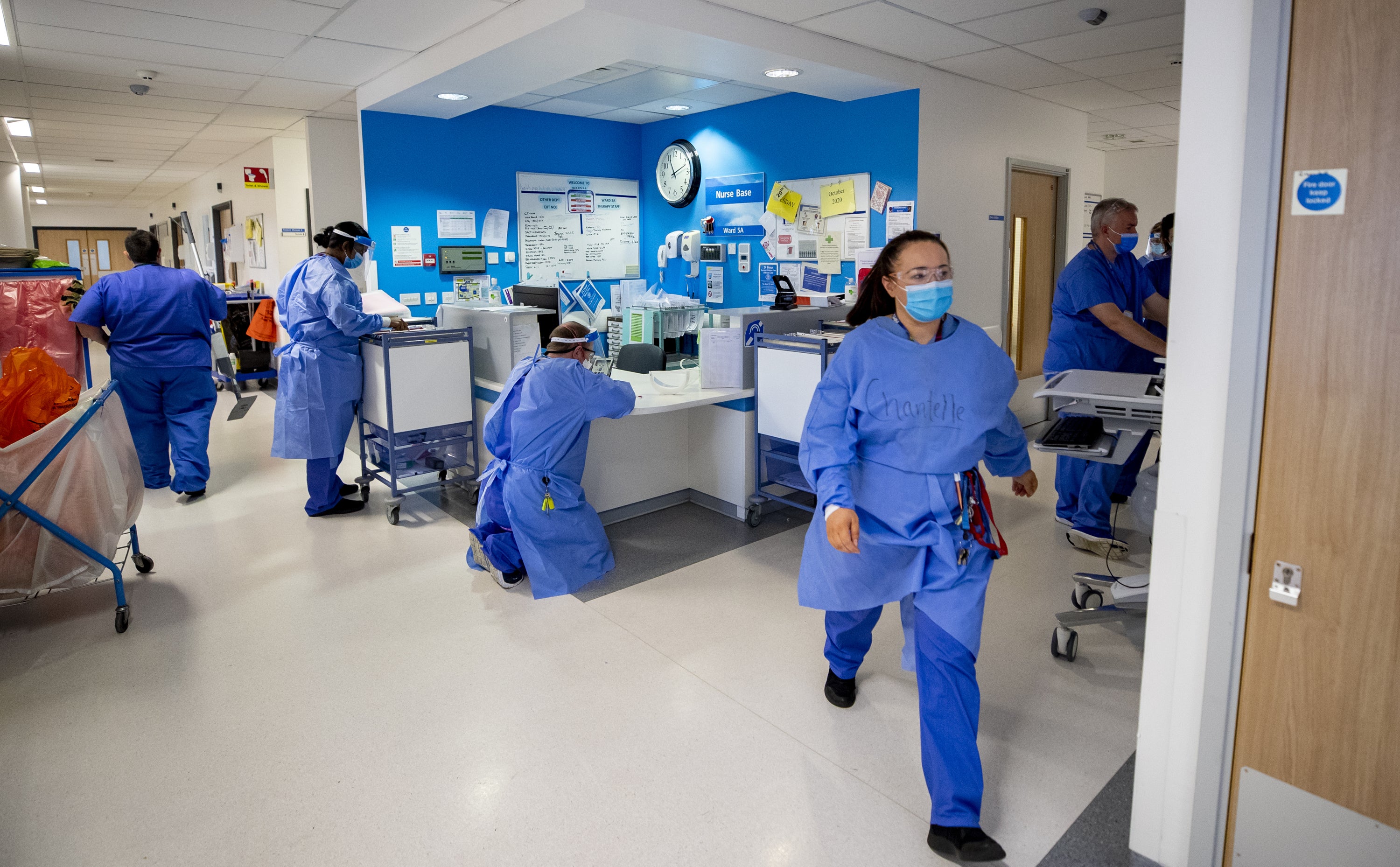NHS ‘marking own homework’ over complaints
Experts have called for the system of complaints to be changed.

Your support helps us to tell the story
From reproductive rights to climate change to Big Tech, The Independent is on the ground when the story is developing. Whether it's investigating the financials of Elon Musk's pro-Trump PAC or producing our latest documentary, 'The A Word', which shines a light on the American women fighting for reproductive rights, we know how important it is to parse out the facts from the messaging.
At such a critical moment in US history, we need reporters on the ground. Your donation allows us to keep sending journalists to speak to both sides of the story.
The Independent is trusted by Americans across the entire political spectrum. And unlike many other quality news outlets, we choose not to lock Americans out of our reporting and analysis with paywalls. We believe quality journalism should be available to everyone, paid for by those who can afford it.
Your support makes all the difference.NHS complaints procedures have been likened in a new review to “asking hospitals to grade their own homework”.
Researchers set out to examine the national policies for handling complaints within the health service, where some 200,000 complaints are made each year.
Complaints are a “critical source” to help drive improvements, with most patients and families contributing to the system to prevent harm from occurring to others, yet they “often” feel dissatisfied with the system, researchers said.
All complaints are opportunities towards better understanding patients’ needs and their unique perspective on organisational safety
They said the “complex, bureaucratic nature” of the complaints system is often cited as an “obstacle to effective complaint handling”.
The team of academics, led by experts from Imperial College London, examined national policies guiding NHS hospitals and interviewed 20 clinical, managerial, complaints, and patient advocacy staff about their experiences with the system.
Their paper, published in the Journal Of The Royal Society Of Medicine, identified a number of national policies which “undermine a patient-centric and improvement-focused approach to complaints” including:
– Patients facing “muddled” routes for raising concerns. In some instances even frontline staff were unsure about the differences between Patient Advice and Liaison Service (PALS) and complaints services.
– There was a heavy emphasis on whether or not complaints were “well founded”. Investigators assessed the legitimacy of complaints through checking hospital documentation with “internal evidence being regarded as superior”. The authors wrote: “Asking hospitals to grade their own homework carries particular risks in the context of organisations with poor safety culture.”
– National requirements for data about complaints were seen to be too “granular” and did not help hospital complaint managers spot any recurring themes.
– Managers appeared to focus on whether complaint handling was meeting national performance targets when monitoring the system, leaving the “relative severity” of individual complaints “unexplored”.
The authors have made a series of recommendations on how the complaints procedures could be improved including: patient involvement in complaints investigations, the establishment of independent investigation bodies, and more meaningful data analysis to uncover and address recurring complaints.
Lead researcher Dr Jackie van Dael, from Imperial College London, said: “All complaints are opportunities towards better understanding patients’ needs and their unique perspective on organisational safety.
“We recommend involving patients and families in complaints investigations as standard practice and creating opportunity for dialogue between involved staff and affected patients.”